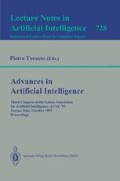Abstract
This paper shows that the effects of the interaction between simple artificial agents in a well defined economic environments, such as an artificial stock market, are useful to understand microeconomic events. We employ here the connectionist cross-target (CT) method [4] to build artificial neural subjects that make (i) guesses about their own actions and (ii) guesses about the effects of those actions. Each subject, learning and acting, develops the coherence between the two types of guesses. Our artificial interacting agents buy and sell shares, following cyclical behaviour (buying when the price rises and selling when the price diminishes) or developing risk aversion or true anti cyclical strategies. The last complex strategy can emerge from imitation between agents and randomness instead of reason.
Preview
Unable to display preview. Download preview PDF.
References
J.H. Holland, J.H. Miller: Artificial Adaptive Agents in Economic Theory. American Economic Review, 365–370 (1991)
D. Parisi, F. Cecconi, S. Nolfi: Econets: Neural Networks that Learn in an Environment. Network, 149–168 (1990)
A.P. Kirman: Whom or What Does the Representative Individual Represent? Journal of Economic Perspectives, 117–136 (1992)
P. Terna: Labour, Consumption and Family Assets: A Neural Network Learning from Its Own Cross-Targets. In: T. Kohonen et al. (eds.): Artificial Neural Networks. Amsterdam: Elsevier 1991, pp. 1759–1762
Author information
Authors and Affiliations
Editor information
Rights and permissions
Copyright information
© 1993 Springer-Verlag Berlin Heidelberg
About this paper
Cite this paper
Terna, P. (1993). Randomness, imitation or reason explain agents' behaviour into an artificial stock market?. In: Torasso, P. (eds) Advances in Artificial Intelligence. AI*IA 1993. Lecture Notes in Computer Science, vol 728. Springer, Berlin, Heidelberg. https://doi.org/10.1007/3-540-57292-9_47
Download citation
DOI: https://doi.org/10.1007/3-540-57292-9_47
Published:
Publisher Name: Springer, Berlin, Heidelberg
Print ISBN: 978-3-540-57292-3
Online ISBN: 978-3-540-48038-9
eBook Packages: Springer Book Archive

